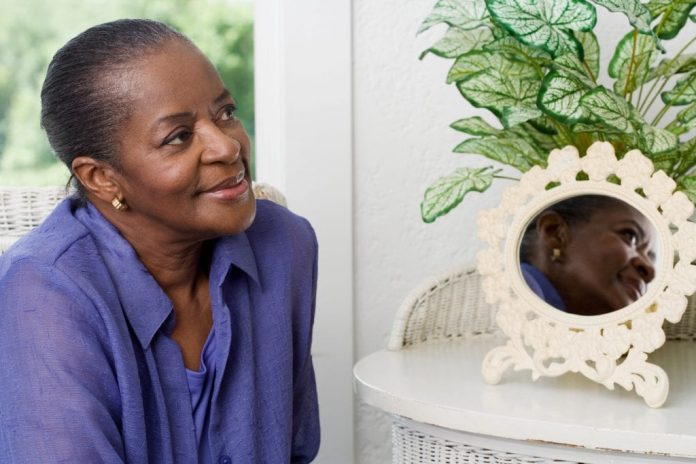Psychics in fiction have always had a strange grip on us. From the mysterious fortune teller at the carnival to the comic-relief professor with a crystal ball, these characters never fail to leave their mark. But why do they stay with us long after the credits roll or the book ends? It’s not just because they’re quirky or spooky—it’s because they scratch a deep itch inside us.
We want to believe there’s more to life than meets the eye. We want signs, guidance, maybe even a peek behind the curtain of fate. And psychic characters—done well—give us exactly that.
This isn’t another recycled list of “top 10 psychics in movies.” Instead, let’s dig into why these characters matter, how they shape culture, and why they might even encourage us to believe in the real thing.
The Archetype of the Psychic in Storytelling
Psychic figures go back long before Netflix and Hollywood. Ancient myths had seers, shamans, and prophets. Greek tragedies leaned heavily on oracles, like the famous Oracle of Delphi, whose cryptic predictions shaped the course of kings.
Hollywood simply borrowed what humanity has always been obsessed with: the idea that some people can see more than others. Every generation tells stories about “the one who knows.” Whether it’s Cassandra warning Troy of destruction or a modern-day teen who sees ghosts, the archetype survives because it speaks to something primal in us: fear of the unknown and longing for answers.
Psychics as Plot Devices vs. Psychics as Teachers
Writers often use psychic characters as shortcuts—cheap foreshadowing machines. They say something cryptic, the hero ignores it, and boom—the plot plays out just like predicted. But the memorable psychics go deeper.
They act as teachers, cautionary voices, or symbols of wisdom. A flat fortune teller with vague predictions is forgettable. But a psychic who embodies themes of fate, free will, and sacrifice? That’s powerful storytelling.
Think of it this way: bad psychic writing is like a parlor trick. Good psychic writing is like philosophy in disguise.
Case Studies: Characters Who Got It Right
Let’s zoom in on a few psychic characters who left lasting marks—not just for their powers, but for what they taught us.
Professor Trelawney (Harry Potter)
Comic relief? Absolutely. But underneath the sherry-soaked glasses, she raises big questions about fate. When she makes true prophecies, it reminds us that even the messy and overlooked can channel wisdom. She’s proof that psychic power can hide in the most unlikely package.Cole Sear (The Sixth Sense)
The boy who whispered “I see dead people” gave us one of cinema’s most chilling lines. But Cole isn’t a gimmick; he’s a metaphor for childhood sensitivity. Many kids are naturally intuitive, more open before skepticism sets in. Cole shows us both the pain and the gift of psychic empathy.Oda Mae Brown (Ghost)
At first, she’s a hustler playing psychic games. But when real spirits start speaking, she evolves into a genuine medium. Her transformation shows a truth many real psychics know: ability can come unexpectedly, and responsibility follows.Jean Grey (X-Men)
Here’s a psychic who doesn’t fit the fortune-teller mold. Jean represents psychic power as both gift and burden. Her telepathy and precognition often leave her isolated, struggling with power too great to control. A reminder that psychic growth isn’t just mystical—it’s deeply human.
Why Audiences Crave Psychic Figures
When times are uncertain, audiences crave seers. Psychics in fiction offer narrative lighthouses—comfort that someone, somewhere, knows what’s coming.
They let us explore death without facing it directly, destiny without committing to belief, and mystery without demanding proof. Psychologists suggest humans are wired to look for patterns and meaning【Psychology Today: https://www.psychologytoday.com/us/basics/pattern-recognition】, and psychic characters embody that drive in human form.
We don’t just want them—we need them, because they make chaos feel manageable.
The Line Between Fiction and Reality
Real psychics often say Hollywood is both a blessing and a curse. On one hand, characters create curiosity. On the other, they set wild expectations. Clients show up expecting dramatic visions, ghostly apparitions, or cinematic revelations—when often, psychic insight is subtle, symbolic, or intuitive.
Still, fiction plants seeds of belief. Someone who scoffs at psychics might watch The Sixth Sense, cry through the ending, and quietly wonder: what if this is possible?
Representation Matters: Diversity in Psychic Characters
Another overlooked angle is representation. Fiction has often placed psychic roles onto women, people of color, or marginalized figures—sometimes as stereotypes, other times as empowering voices.
Think of the wise Black medium in Ghost or the Roma fortune teller trope. While some depictions are problematic, others highlight the role of intuition and spirituality in cultural survival. The best psychic characters reflect diversity with depth, not caricature.
Cultural studies show that mystical figures often emerge at the edges of society【Smithsonian Magazine: https://www.smithsonianmag.com/history/fortune-tellers-american-culture-180975228/】. Writers who lean into nuance rather than stereotype create characters who resonate longer.
The Symbolic Lessons of Psychic Characters
Psychics in fiction often symbolize:
The burden of knowing too much – Cassandra cursed to see Troy’s fall but never be believed.
The loneliness of being misunderstood – many psychics live on the edges of their communities.
The empowerment of clarity – characters who guide heroes when no one else can.
Real psychics will tell you these themes mirror their own lives. The responsibility of sight is rarely light.
How Psychic Characters Encourage Belief in Real Psychics
Pop culture drives belief. After The Sixth Sense, interest in mediums and child intuitives spiked. After Stranger Things, searches for telekinesis and psychic powers shot up.
Fiction normalizes psychic phenomena, making it part of cultural conversation. Once normalized, curiosity often leads people to explore real readings, training, or research. As Forbes points out, spirituality is now a booming industry【Forbes: https://www.forbes.com/sites/forbesbusinesscouncil/2021/07/19/how-spiritual-influencers-are-shaping-modern-marketing/】.
Psychic characters don’t just entertain—they shape markets, belief systems, and personal exploration.
What Writers Can Learn from Real Psychics
Here’s some advice for storytellers: talk to real psychics. Learn about subtle impressions, dream visions, symbolic downloads, and empathy overload.
Too often, fiction flattens psychics into carnival performers or spooky clichés. But real psychics are often quiet, thoughtful, and deeply human. By blending authentic traits into fiction, writers can create characters that resonate on a soul level.
Practical Takeaway: Watch Fiction to Train Your Intuition
Here’s a fun experiment: watch your favorite psychic character and treat it as a mirror exercise.
What qualities feel authentic?
Which fears or doubts resonate with you?
How does their story reflect your own search for guidance?
In doing this, you train your intuition. Fiction becomes practice—not just entertainment.
Conclusion: Why Fictional Psychics Matter in Real Life
At the end of the day, psychic characters aren’t just fun—they’re cultural guides. They remind us of the mysteries we long to understand, the inner wisdom we sometimes ignore, and the possibilities that lie just beyond logic.
When fiction shows us psychic potential, it whispers a dare: maybe it’s time to explore the real thing.
FAQ: Favorite Psychic Characters
Why do psychic characters keep showing up in movies and books?
They’re timeless archetypes—modern versions of seers, oracles, and shamans. They let us explore fate, death, and meaning without a lecture.Are psychic characters just plot shortcuts?
Bad ones are. Strong portrayals teach ethics, cost, and discernment. They’re mentors, not vending machines for spoilers.Which psychic characters feel closest to real-life mediums?
Characters who get subtle hits, symbols, and emotional overload (e.g., Oda Mae in Ghost, Cole in The Sixth Sense) mirror how many mediums describe the work.Do psychic kids in fiction reflect anything real?
Yes. Children often report vivid dreams and intuition before skepticism sets in. Fiction turns that sensitivity into a story engine.Why are psychics in fiction so often women or marginalized figures?
Because culture associates intuitive authority with the edges of power. Great writing uses this to empower rather than stereotype.How do psychic characters affect public belief in real psychics?
They normalize the conversation. After impactful films and shows, searches, readings, and community interest tend to rise.What’s the most common myth fiction spreads about psychics?
That every reading is cinematic and instant. In practice, impressions are symbolic, quiet, and require interpretation.What ethical lessons do good psychic characters model?
Consent, scope-setting, humility, and aftercare. They show that “can” doesn’t always mean “should.”How can writers avoid psychic clichés?
Study real practices: journaling impressions, dreamwork, symbolism, energetic boundaries. Give characters limits and consequences.Do psychic powers in superheroes teach anything useful?
Yes—power plus responsibility. Characters like Jean Grey embody overflow, control, and the emotional cost of knowing.Can watching psychic characters improve my own intuition?
Treat scenes like drills: pause, predict a character’s next move or symbol meaning, then check yourself. Build a personal symbol list.Why do some psychic characters feel comforting while others feel eerie?
Comfort comes from guidance and closure; eeriness comes from uncertainty or boundary-crossing. Tone follows intention and ethics.Are comedic psychics harmful to belief?
Not if they carry truth beneath the punchlines. Humor can make big ideas accessible without mocking genuine ability.What makes a psychic character unforgettable?
Three things: a clear inner code, a visible cost, and a gift that changes how others see the world.





I’m quite skeptical about these so-called ‘abilities.’ It’s more likely that people are being misled by pseudoscience. Where is the empirical evidence? Seeing things ‘between space and time’? That sounds more like science fiction than fact.
The article provides a comprehensive overview of different psychic abilities, debunking many common misconceptions. It’s interesting to note how each ability has its own distinct characteristics and how they can be positively leveraged in one’s life.
The piece effectively educates readers on the nuances of psychic abilities. Highlighting the positive implications of these abilities, such as increased empathy and understanding, adds a refreshing perspective.
A well-structured piece that clarifies the often misunderstood aspects of psychic phenomena. It’s evident that these abilities are more about understanding and empathy rather than fear or superstition.
This article provides an insightful and nuanced perspective on psychic abilities. It goes beyond common misconceptions and highlights the depth and purpose behind clairvoyance, clairaudience, clairsentience, and claircognizance. By shedding light on the true nature of these phenomena, it encourages a more compassionate and open-minded understanding. Well done!
Interesting read, but let’s be honest, how many of you have clairvoyance on your resume? These fanciful descriptions are amusing, but they hardly hold up in the real world.
This article certainly dispels many myths surrounding psychic phenomena. The detailed breakdown of clairvoyance, clairaudience, clairsentience, and claircognizance provides a clearer understanding of these abilities.
This is a beautifully written piece! It’s enlightening to see the broad spectrum of psychic abilities laid out so clearly. The article does a great job dispelling common misconceptions and providing a detailed explanation of each type of clair-perception.
Oh, great! Now, next time I hear voices, I’ll just assume I’m clairaudient. Not! This article is great for a laugh but highly unlikely to change my views on so-called psychic abilities.
What a fascinating article! I’ve always been intrigued by how clair-perceptions work. The explanations here are thorough and provide a deeper understanding of how these abilities interact with energies and the environment.
I appreciate how the article distinguishes between various forms of psychic abilities. The explanation of claircognizance, in particular, shows how it can be harnessed constructively rather than being seen as something mystical or inaccessible.
Comments are closed.